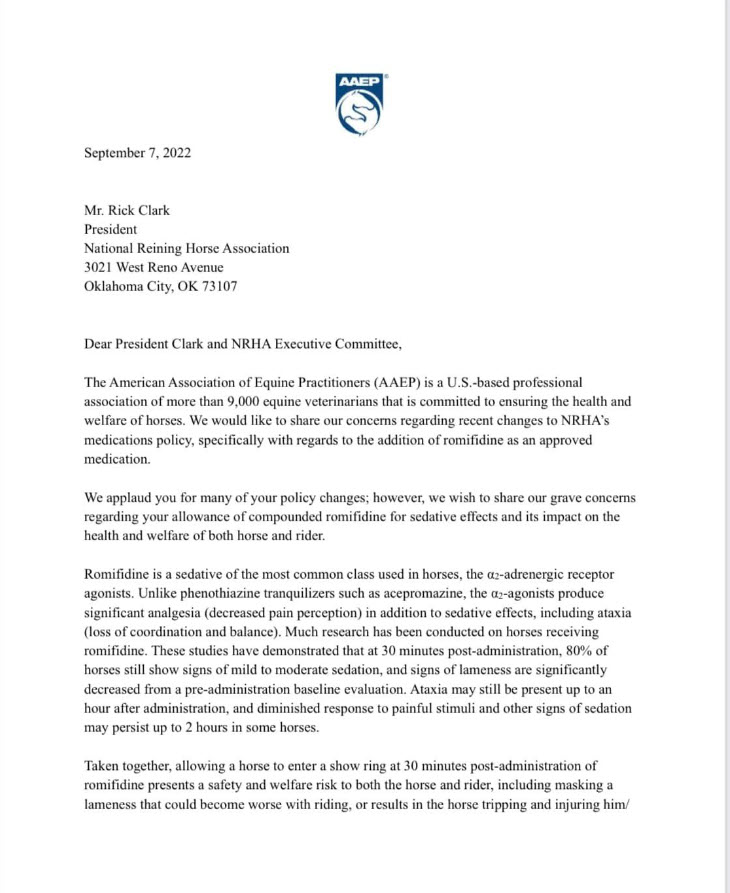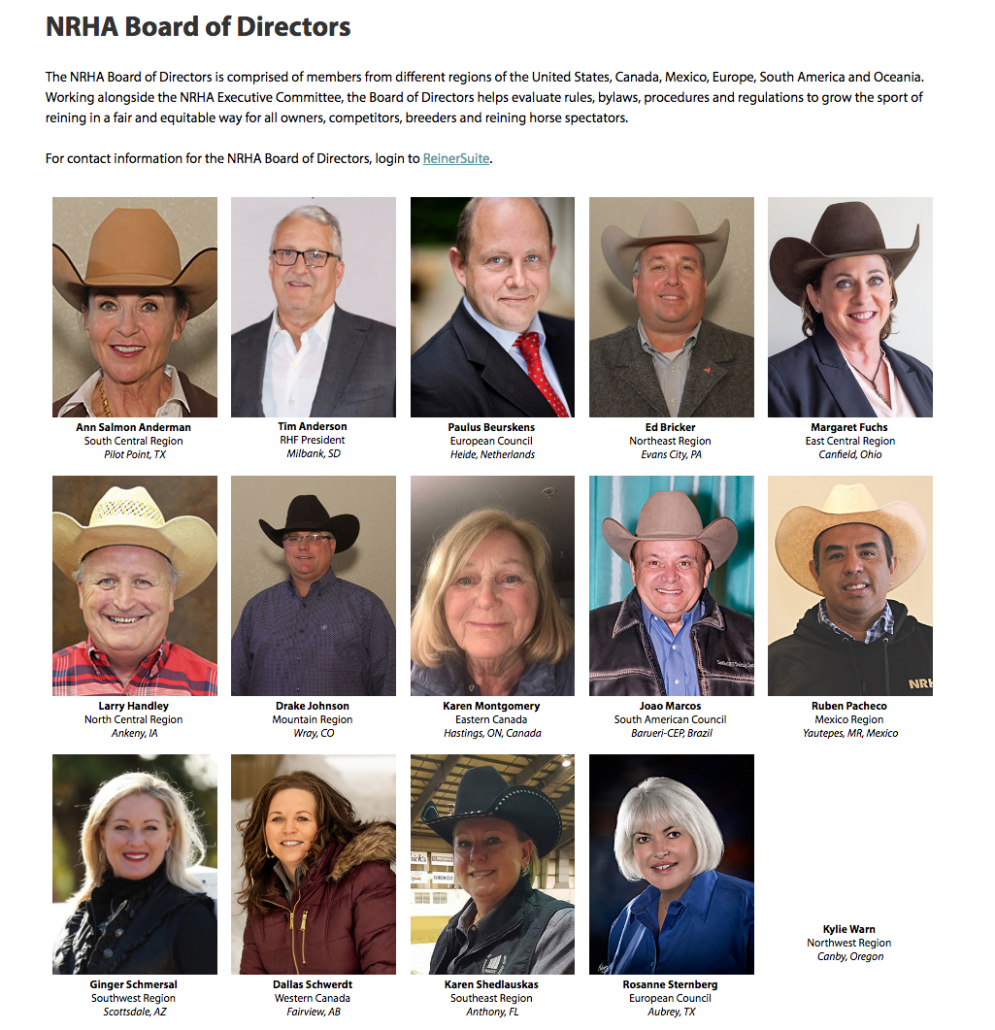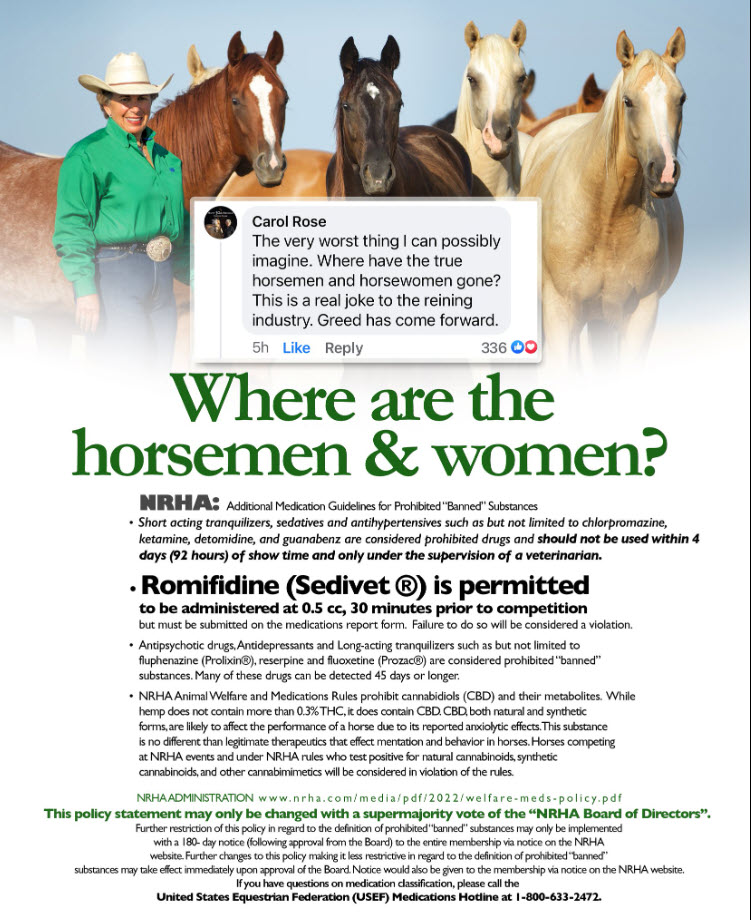One of the greatest barriers to peak performance is young horses carrying too much weight, according to veterinarians. They say ‘Rider Weight Matters’
However, reining horse enthusiasts seem to ignore the facts and have no desire to change, as they refute people’s comments, cringing at reining photographs of overweight or oversized riders on small horses. Reiners use their wide-ranging excuse, saying they are well cared for.
Rider weight matters, and the world is shifting based on science, leaving the reining horse sport well behind and their horses at the highest risk of damage.
Science proves a trainer weighing over 140 lbs (63kgs), excluding saddle, could be holding your horse back on a 14hh horse!
Rider weight matters, and your horse could be underperforming due to the physical strain of carrying too much weight, with the addition of being repeatedly asked to perform some of the most athletic maneuvres in sand arenas for a minimum of two years in preparation for a futurity.
Research in equine biomechanics suggests that a horse’s ability to carry weight isn’t limitless. In studies by Dyson, S. J., Ellis, A. D., Mackechnie-Guire, R., Douglas, J., Bondi, A., & Harris, P. (2019). Ter: horse bodyweight ratio and rider-horse-saddle fit on equine gait and behaviour. This controlled trial assessed how horses responded when ridden by riders of varying weight ratios (≈10–11.7%, 12.8–15.0%, 15.3–17.9%, 23.6–27.5% of horse weight). Results showed that tests with heavier riders had to be abandoned due to signs of temporary lameness or pain behaviours, while lighter loads did not provoke these responses.
- Rider-to-Horse Ratios for Reining Performance and Soundness
In reining, balance, athleticism, and power are everything. The high demand of manouvres requiring excessive bursts of speed, stopping, turning, excessive circling, placing higher than normal pressure on their hind ends and back. Demands on reining horses are considered far greater than any other equine sport, including cutting, so rider weight matters.
For reining, where spins, sliding stops, and rollbacks place high forces on the hindquarters and back, a more conservative ratio is advisable by veterinarians of 15% Total Load.
Recommended Ratios for Reining Horses
| Horse Height |
Avg Weight (mature horse) |
Advisable 15% Total Load (lbs) |
18% Max Load (lbs) |
Less Saddle 30lbs of max load for 18% |
| 13.2 hh |
850 |
128 |
153 |
123 |
| 14.0 hh |
950 |
142 |
171 |
141 |
| 14.2 hh |
1,050 |
157 |
189 |
159 |
| 15.0 hh |
1,150 |
172 |
207 |
177 |
- As a guide, 180 lbs for a 5′10″ man and 195 lbs for a 6′0″ man is a reasonable assumption for standard weight-to-horse calculations.
Notes:
- Veterinarians advise that a horse that is holding extra or excessive body weight does not allow it to carry a higher rider weight. In fact, it lowers the carrying capacity, and a weight of 10% of the total lbs is advised.
Based on the chartered ratios, it is apparent that many riders exceed the maximum load ratio, particularly on young futurity horses.
- Why the Range Is Lower for Reining
Reining maneuvers generate brief, intense loads on the hind end and spine — far greater than straight-line riding. A heavier load shifts the rider’s center of gravity rearward, increasing strain on ligaments, joints, and muscles that are already under stress during stops and spins. Above 18%, studies show measurable increases in heart rate, reduced stride length, increased damage to hocks, hind quarters, higher lactate levels and longer recovery times.
Best Practices for Soundness
- Target less than 15% for rider + tack for routine training.
- Prioritize conditioning and balance in both horse and rider.
- Monitor for soreness or stiffness after sessions involving high-impact maneuvers.
- Monitor wear and tear over medium term along with short term.
- Adjust training intensity based on individual horse conformation and fitness.
Smart weight management isn’t just about numbers — it’s about helping your reining horse stay sound, willing, and peak-performing year after year.
The Irony of ‘They Care For the Horse’
For many reining horse participants or enthusiasts, the common rebuttal is ‘they are really well cared for’. A mantra that forgives all evil of the training methodology, in their mind.
The issue with care is no matter how much care is provided in Hydrotherapy, Thermotherapy (hot) and Cryotherapy (cold) therapy, Hiropractic and Osteopathic Care, Supportive Bandaging / Boots, Therapeutic Massage / Myofascial Release. These are all treatments of the effect and not the cause.
Weight Matters for Performance Horses, and the damage or risk is not resolved until you lighten the load on the horse’s back.
- Physiological Effects of Heavy Loads on Reining Horses
- Heart Rate and Metabolic Stress
Several controlled studies show that as the percentage of body weight carried increases, a horse’s heart rate, respiration rate, lactate levels, and body temperature all rise, indicating increased physiological strain:
- Horses carrying heavier loads (e.g., 25–30% of body weight) have higher heart and respiration rates and elevated blood lactate after exercise — signals of greater workload and fatigue.
- A study showed that even an added 10% body weight increased oxygen consumption by ~15%.
This increased metabolic cost means the horse is working harder for the same amount of movement, which can slow performance and accelerate fatigue.
- Stride and Movement Changes
- In incremental tests, increasing weight from 20% to 35% of body weight resulted in linear rises in heart rate and respiration and exponential rises in lactate, indicating that heavier loads disproportionately burden the horse.
- Weight carriage beyond recommended levels also correlates with gait asymmetry and behavioural indicators of discomfort in broader studies of load effects.
- Muscle Soreness and Recovery
Horses carrying 25–30% of their body weight show higher muscle soreness and tightness in follow-up assessments compared to when carrying 15–20%.
This suggests that heavier loads contribute to musculoskeletal stress, which can impair performance and increase recovery needs — especially relevant for reining horses doing repeated high-impact maneuvers.
How Load Affects Horse Performance
| Weight Load (% of Horse Body Weight) |
Typical Physiological Effect |
Likely Performance Impact |
| ≤15–20% |
Normal heart rate & recovery |
Efficient movement |
| 20–25% |
Increased workload (HR, lactate↑) |
Fatigue faster, reduced agility |
| ≥25–30% |
High metabolic stress (HR, lactate↑) |
Soreness, prolonged recovery |
| ≥30% |
Elevated lactate, muscle stress,HR |
Clear performance impairment |
“HR” = heart rate; “lactate” indicates metabolic fatigue from harder work.
One review of equine exercise research concludes that higher loads affect biomechanical, physiological, biochemical, and behavioral parameters, and may lead to asymmetry or lameness — especially under prolonged or intense work conditions.
- Long-Term Load & Muscle Effects
Research on horses carrying loads of 25–30% of body weight found:
- Elevated muscle damage markers (creatine kinase) after exercise
- Higher post-exercise soreness compared with horses carrying ≤20%. This suggests that heavier loads may delay recovery and lead to potential injury over time.
Key Takeaways for Reining Horses
✔ Short, routine work at moderate loads (≤20%) may not show acute physiological changes, but…
✔ High-impact performance (slides, spins) places extra stress — and added weight likely magnifies fatigue and muscle strain.
✔ Longer exercise and repeated loads at higher ratios show clear signs of metabolic cost and delayed recovery.
Associations and groups are taking a hard line as they become aware of the impact of overweight riders on horses.
- Retraining of Racehorses (RoR) — United Kingdom. RoR has introduced mandatory weight ratio rules for its competitions: rider + tack should ideally not exceed 17% of the horse’s bodyweight, with an absolute maximum of 20%. Officials may weigh participants at events.
- British Dressage — United Kingdom British Dressage has published maximum load guidance recommending that a horse should not carry more than 20% of its bodyweight (rider + tack) to promote welfare and balance.
- International Mounted Games Association (IMGA) IMGA rules enforce a rider weight limit of 20% of a pony’s bodyweight in competition. If a rider’s weight exceeds this, they may be eliminated or assessed by a referee.
There are welfare guidelines in Switzerland, EU, the UK, Australia and New Zealand that a maximum of 15% to 20% body weight
The Global Racing Horse industry is fully aware that every pound matters in pre-training, track work and racing.
The question remains: will the reining horse industry move into the modern era and recognise and act on the welfare issues related to rider weight matters?
© 2024 Reining Trainers Engima
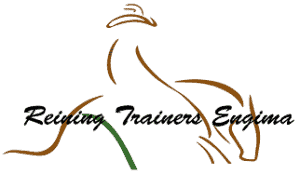
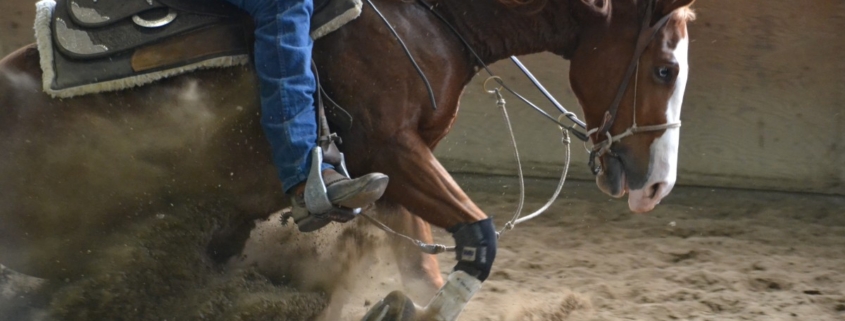
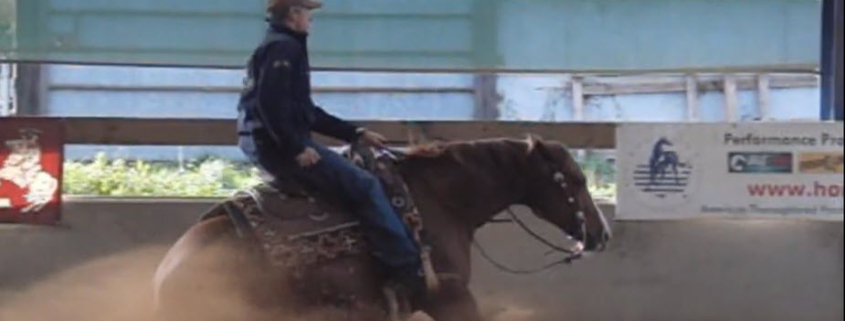

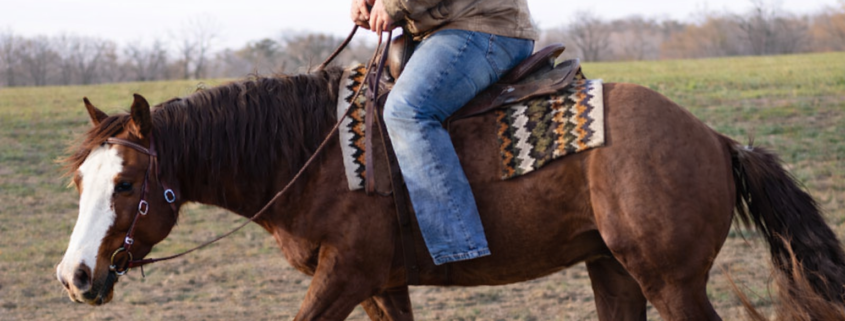
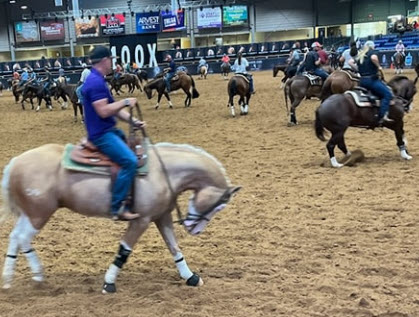


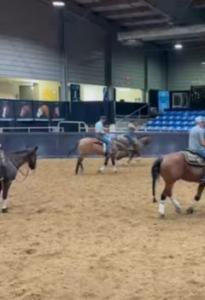

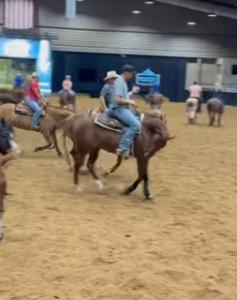

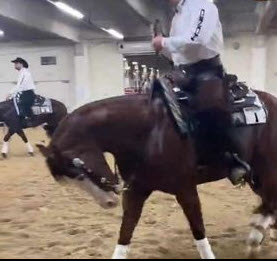



 While the NRHA is boasting about their great new penalties, are they just distracting members and the public from the fact that there is no accountability for whether violations are acted upon? History says, most unlikely. Some members say it’s just more of the same ‘mushroom syndrome’. [The practice of being supplied with little or no information and often instead intentionally supplied with misinformation]
While the NRHA is boasting about their great new penalties, are they just distracting members and the public from the fact that there is no accountability for whether violations are acted upon? History says, most unlikely. Some members say it’s just more of the same ‘mushroom syndrome’. [The practice of being supplied with little or no information and often instead intentionally supplied with misinformation]
